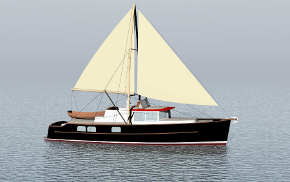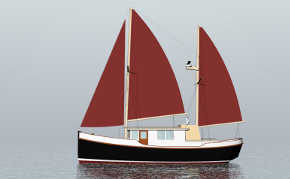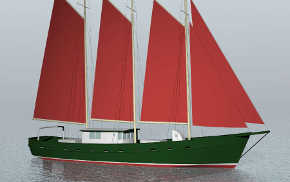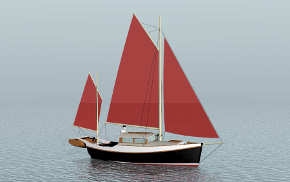OF RATS AND MEN
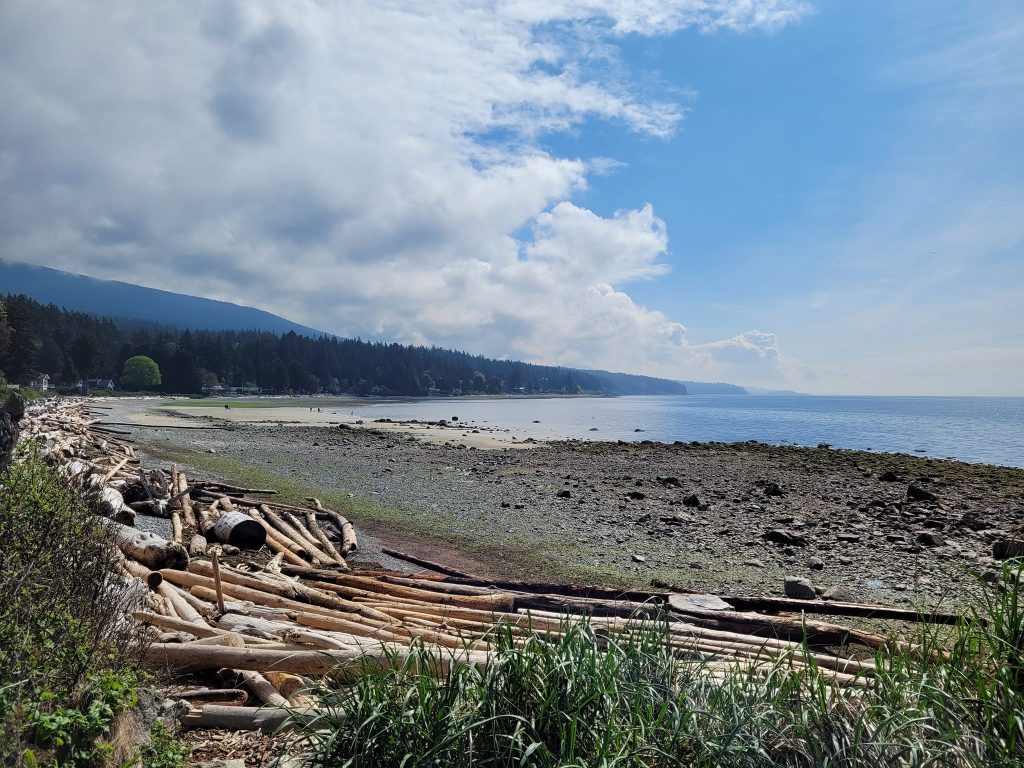
A story by Harry Roberts.
Re-written by Tad Roberts in August 2022.
From : Of Rats And Men, I believe this could have been an unpublished chapter of his Trail Of Chack-Chack book, or it was intended for the sequel to the Trail.
The setting is Roberts Creek, approximately 1915-16. Bill is Harry’s brother, two years younger than Harry he was 14 years old when what was left of the family rowed to Roberts Creek from Vancouver in 1900. Harry, Bill, and their 12 year-old sister Ida had always lived in England when father Frank moved them to a pioneer life on the BC coast. This move was occasioned by the death of the children’s mother Elizabeth, the upheaval was no-doubt traumatic but kid’s are adaptable and there was much to do at the Creek homestead. Having lived at the Creek for 15 years by the time these events took place, both Harry and Bill had a wealth of experience to draw on.
“When Bill was married and living on waterfront property about a mile and a half from the original homestead (east along the beach, ed) we had an experience with two of another kind of rat.
Bill came hurrying along to my place late one afternoon. “Can you still get your boat out of the Creek?” At this time I had a good power boat which I had built myself and called by my initials, L.H.R. “Two young city fellows are in a real mess with a boat out in front of our place. From what I make of it the boat is not theirs. It is one which they were to have taken up to Knight’s Inlet for two mining men,” Bill told me as we strode over to my boat. We could only just get it out, for the tide had gone down considerably.
By the time we had gotten to where the crippled boat had been when Bill had left, there was nothing to be seen of it, but the two young fellows, with Bill’s own two boys were sitting on the drift logs at high tide mark.
There was a low reef running out into the water just east of Bill’s place. The boat was just under water; it had pounded against the reef and one side had been damaged. We could do nothing now, so Bill went ashore and I returned to the Creek.
Bill and his two boys worked the best part of that night at low tide getting all that was worth saving from the ruined hull, which was beyond repair. The two city fellows walked to Gibson’s and took a steamer to Vancouver. They couldn’t have cared less what became of the boat and her cargo entrusted to their care.
At the next high tide we loaded the things into my boat and took them to my workshop. I had a talk with the skipper of the Union Steamboat that day.
“Yes, we did leave two men at Alert Bay who were looking for their own boat to take them up Knight’s Inlet. If they are the owner’s they will be still at Alert Bay when we get there the day after tomorrow. They might come back to you with us.”
One did do this. He was one of three who had joined in a mining job. They had sunk every cent they had into this boat and the goods aboard. In fact, they had gone into debt for some. They were mining men and knew nothing about a boat so had asked the agent who had handled the deal to find a man who would take the boat up to the inlet and look after it as they would have to have a boat of their own (for at that time no steamer went there). The agent said that he did not know the two but from what they said he believed that they were boating fellows, however he could not go good for them in any way.
From what they told Bill they had never been on the Gulf Of Georgia but had run a small boat about the mouth of the Fraser River. They had got a small map which showed Knight’s Inlet, so it looked easy. They felt tired by the time they had loaded the goods and gotten from Vancouver up to where they saw Bill and his boys working on the beach. They dropped anchor (but with insufficient line to allow for the rising tide) and got a good meal, for there were many varieties of food on board and lots of it. Then they lay down for a good sleep, and the boat went ashore while Bill and the boys were in the house. By the time Bill noticed what had happened, the boat was hard against the windward side of the rocks and the damage done.
“That’s another job done without any pay for us and a hell of a loss to three others because of two city rats!” said Bill in disgust.
As a rule when emergencies arose we dealt with them without a thought of what is there in it for me, but, sometimes afterwards, returning tired to our interrupted work we felt as Bill had expressed it. And yet, as the years went by, we saw—–and now I know this to be one of the great truths of life—-we are more than paid for any kindness we may do and the payoff comes from many different directions; not at all from where we might expect it. Many, many times I feel I have received a whole loaf in return for half of one.”
I have no idea how this lesson was passed on to me, but it is how I’ve lived my life, and it’s certainly how my father (Harry’s son) lived his. I believe I have passed it on to my sons. Dozen’s of times we have rescued boats in trouble with no thought of compensation, and many times we’ve waved it off when offered. Like Harry I firmly believe it will come back to us, in some way, despite considerable evidence to the contrary. Some years back there was a rash of stranding s on Shipyard Rock, at the entrance to our bay, it seemed we were out numerous days in a row towing people off the rock. Someone suggested to my wife, “I guess you’re making lots of money in salvage?”, we didn’t know what to say as some of those rescued had been too rattled to even say thanks. But it was an insight into how others view the world.
-
External Links
- Sorry, no links have been posted
